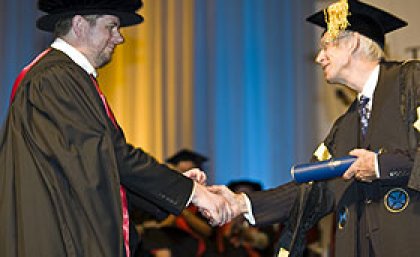
A UQ psychology graduate has shown media portrayals of international conflict involving Muslims may facilitate the idea that Muslim beliefs are incompatible with Australian society.
Dr Campbell White's research comes amid reports of public opposition to a proposed $19 million Muslim school in Sydney's far western suburb of Camden and controversy surrounding the Australian International Islamic College in Carrara.
"When people think about an issue like Camden, media images of Muslims involved in war and conflict can affect their judgement about the issue, even if they would normally endorse tolerance as a policy," Dr White said.
The research found media stories or images interacted with existing attitudes and influenced perceptions of threat and constructions of cultural incompatibility or "otherness".
"People who rely heavily on the media can recall images of Muslims in conflict so the idea that Muslim culture is incompatible with mainstream Australia plays a stronger role in determining whether they will tolerate Muslim practice," Dr White said.
"Those who rely less on the media as a source of information tend to base their perception of Muslims on their existing attitudes toward multiculturalism."
Dr White said host communities tend to take an all or nothing approach to what they see as "incompatible" cultures and expect immigrants from these backgrounds to adopt local cultures or stay away.
"Australian communities tend to regard any attempt by such immigrants to maintain an independent culture as wanting to set themselves apart from the community," he said.
Dr White said media coverage of government initiatives such as the "war on terror" impacted the Muslim community's sense of belonging and citizenship in countries like Australia.
"The 'war on terrorism' has been in some ways unique because the enemy is so poorly defined," Dr White said.
"This means that potentially all Muslims, regardless of ethnic background or nationality, can be considered by some as the enemy."
The research also showed respondents who relied on the media as a source of useful, accurate information were more concerned about issues such as terrorism and interethnic tension.
"It's not that the media should be blamed, or that they should not cover these important stories, but politicians and other public figures should be aware of their potential influence on community harmony," Dr White said.
Dr White's PhD research was supervised by Associate Dean of the UQ Faculty of Social and Behavioural Sciences Associate Professor Julie Duck and Dr Peter Newcombe, Senior Lecturer at the UQ School of Social Work and Human Services.
Media: Melanie Sullivan at UQ Communications (0439 366 001).
.jpg)

